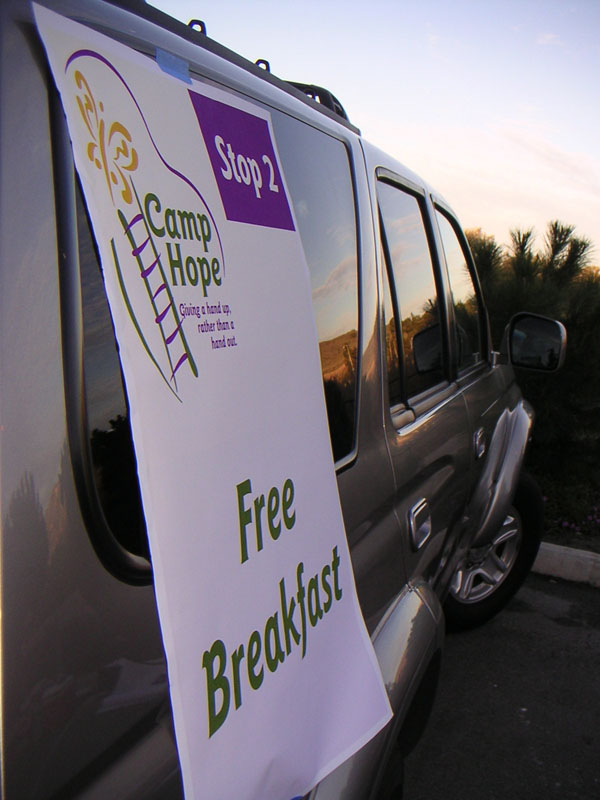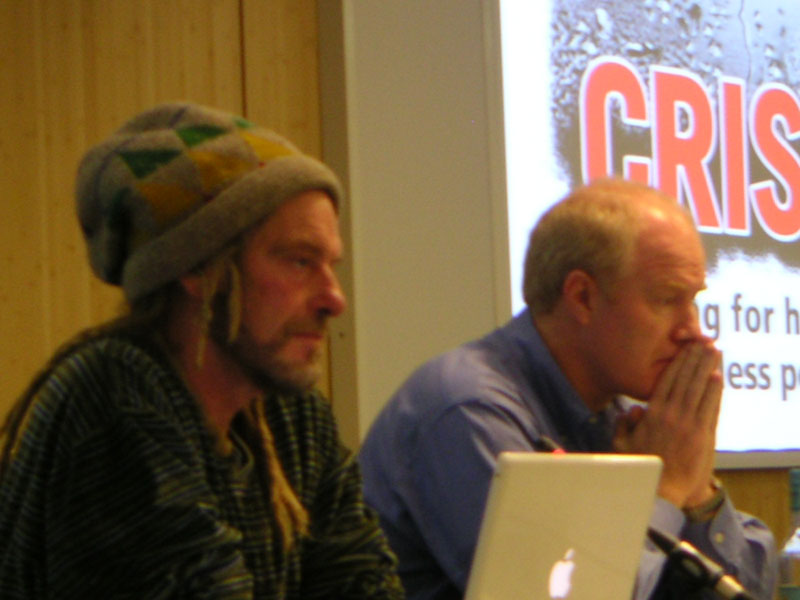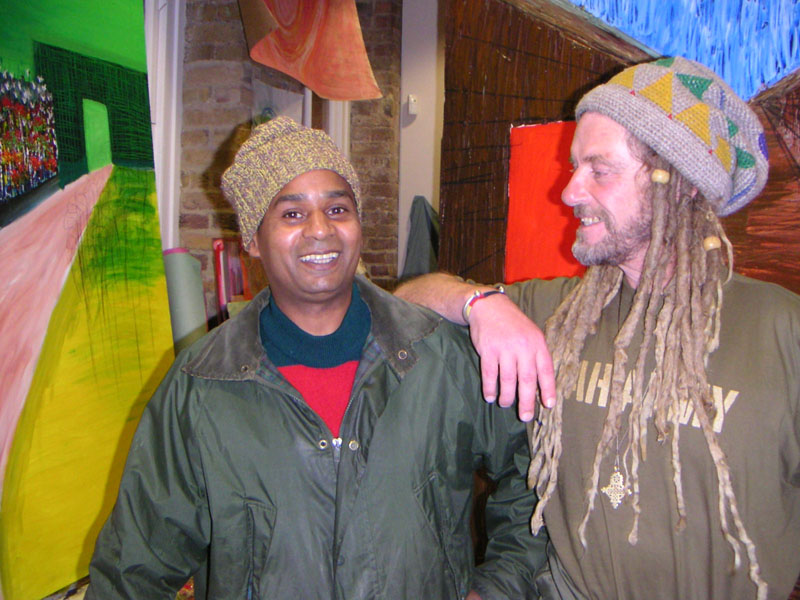Half-finished books, old pictures, near empty boxes of cereal, paper cups, and a calendar, everything that needs a shelf or a wall to rest on, is tossed into the fire. Once they burn, we tear down the bamboo walls, chop them into small pieces and feed them to the pit. For this last brisk night by the ocean, the river basin residents gather all the intimate scraps they can reach in the dark. Under blue mottled moonlight, we boil pots of coffee, light cigarettes, warm hands, and await the swift indifference of the morning’s bulldozers.
But they never come.
By 6:30 am the fire pit is still smoldering and the police are nowhere to be found. Just outside the basin, where we expected bulldozers, we find a sleek banner, accented by cartoon butterflies, that reads, "Stop Two: Free Breakfast."
I had spent the night with residents of the River Basin encampment in Ventura, California awaiting a violent early morning police "sweep" of the area. While the city had offered temporary shelter provisions (cots in an abandoned army base) most opted against them. Ironically, the ‘sweep’ done out of concern for the ‘homeless’, had only served to make hundreds of former residents truly homeless and scrambling for housing in the dead of winter.
When displacement is still as violent as the winter is cold, what changes when it is served with free coffee and donuts, by smiling, latex-glove clad volunteers? "We’re giving them a ‘hand up not a hand out,’" answers one chipper aide, as he reads the tiny print off the banner and hands me a cup of coffee.
That, in a nutshell, or coffee cup, is how compassionate conservatism, the new strategy of poverty management works; not just as a muffling of state violence but as a giddy rewriting of state withdrawal from service provision into personal and political empowerment.
Trying to critique this system is complicated as it lacks all overt markers of struggle. As the concept has spread around the world, infecting not only American policy, but international development policy as well, our challenge is to identify its aggression even in innocuous offers of "Free Breakfast."

Free breakfast at the Ventura River Basin


